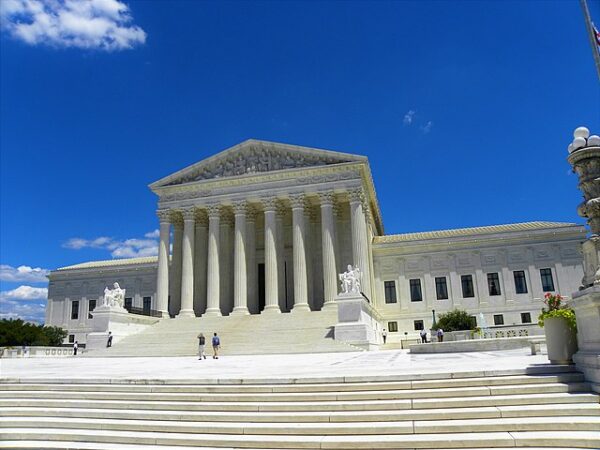The Supreme Court has now reportedly revived a case that could reshape the landscape of workplace discrimination claims.
In a unanimous ruling, the Court reinstated a lawsuit brought by Marlean Ames, a straight woman who alleges she faced discrimination at her job with the Ohio Department of Youth Services.
The ruling challenges existing legal precedents that have typically made it more difficult for individuals from majority groups to pursue claims of “reverse discrimination.”
The case stems from events that unfolded after Ames reported to a new supervisor, a lesbian woman, in 2017. Ames contends that she was denied a promotion in favor of a lesbian colleague and subsequently demoted.
Her lawsuit claims that the decisions were influenced by her sexual orientation, which, she argues, has led to unfair treatment in a workplace increasingly focused on diversity and inclusion.
Justice Ketanji Brown Jackson, writing for the Court, emphasized that Title VII of the Civil Rights Act does not impose a heightened standard for discrimination claims based on sexual orientation.
The ruling overturns a precedent set by lower courts, which had maintained that individuals from majority groups must meet a higher threshold to prove discrimination compared to their minority counterparts. Justice Jackson stated, “We conclude that Title VII does not impose such a heightened standard on majority group plaintiffs.”
Ames’ tenure with the Ohio Department of Youth Services began in 2004, and the conflict escalated after she sought a promotion in 2019.
The state agency claims that Ames was demoted due to a restructuring initiative aimed at addressing sexual violence in juvenile corrections, asserting that her management style was problematic.
They noted that the officials involved in the decision-making process were also straight.
The lower courts, including the 6th U.S. Circuit Court of Appeals, initially sided with the state agency, affirming that Ames had not sufficiently demonstrated that her sexual orientation was a factor in the adverse employment decisions against her.
Following these setbacks, Ames appealed to the Supreme Court, which has now opened the door for a broader interpretation of discrimination claims.
This ruling has implications that extend beyond Ames’ individual case. It suggests that individuals from majority groups may have more opportunities to challenge discriminatory practices in the workplace.
Legal experts are closely monitoring the fallout from this decision, as it could influence future cases involving claims of discrimination based on sexual orientation and other identity factors.
As societal conversations around equity and representation continue to evolve, the Supreme Court’s decision marks a pivotal moment in how discrimination claims are approached, potentially paving the way for a more inclusive understanding of workplace fairness.
The case underscores the complexities of navigating identity and discrimination in an increasingly diverse society.
[READ MORE: Iranian Ayatollah Rejects Trump’s Nuclear Deal Offer]



